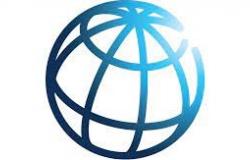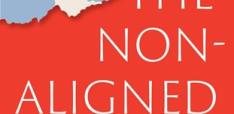The World Bank used to cause untold harm - but 30 years ago it started reforming. What went right

Danny Bradlow shows how it became standard practice for multilateral financing institutions like the World Bank to have an independent citizen driven accountability mechanisms.
Development projects can have profound impacts on their societies. There are many benefits that flow from building new roads and power plants, and from modernising agricultural practices. But they can also have permanent negative consequences.
For example, communities may be involuntarily relocated to make way for roads or power plants. These projects can change the way natural resources are used in a particular area, making it difficult or impossible for communities to continue their traditional agricultural practices. The job opportunities that they create can challenge traditional values and ways of living.
Historically, many of these projects have been owned or sponsored by governments, eager to bring the benefits of modernisation to their citizens. They have often been funded by multilateral institutions like the World Bank, which was established in 1944 to fund the reconstruction and development of its member states.
These institutions were not unaware of the environmental and social impacts of the projects they funded. However, they maintained that each state had to decide for itself how it wished to manage these impacts. They would argue that they were merely the funders, and so should defer to the government on how to manage them. It would be an affront to the state’s sovereignty for them to interfere with the government’s decisions on these aspects of the project.
The World Bank’s confidence in its ability to avoid responsibility for its project related decisions and actions was bolstered by the fact that it was immune from being sued in any national court.
The result was that the bank supported some projects that were environmentally and socially damaging. As a result, during the 1980s the World Bank was the target of sustained protests by affected communities and their allies around the world.
To its credit, 30 years ago the bank, following an international campaign in which this author participated, recognised that its position was untenable. In 1993 it established the world’s first citizen driven independent accountability mechanism, the World Bank Inspection Panel.
This article argues that the panel’s 30th anniversary is a moment to celebrate its accomplishments. The panel has significant limitations. Nevertheless, its impact on development and the international development financing institutions has been profound.
Accomplishments
The three-member panel is independent of the World Bank’s management. It receives and investigates complaints from communities who allege that they have been harmed or threatened with harm because of the World Bank’s failure to comply with its own policies and procedures in funding a particular project. In other words, the panel’s focus is exclusively on the conduct and decisions of the Bank’s staff and management.
It sends its findings to the bank’s board. In cases of noncompliance, the bank’s management is expected to submit an action plan to the board that explains how it will correct the noncompliance and its consequences. Both the report and the action plan are made public.
Since it was established, the panel’s investigations have resulted in some relief for affected communities. For example, 70,000 people, previously ignored by the World Bank, received compensation for their losses in a bridge project in Bangladesh. In the Democratic Republic of Congo, a forestry project was revised to provide greater protection to indigenous communities who had not been adequately consulted about the project.
The panel has also succeeded in establishing the principle that international financial organisations must be accountable for their own actions to the communities whose lives are affected by the projects and policies they finance.
Since its establishment, over 25 multilateral and national development banks and institutions have established their own independent accountability mechanisms. In total, these mechanisms have received 1,634 complaints, of which about 330 have been from 27 countries in Africa. Forty-five of the African cases have resulted in findings on compliance or noncompliance.
All findings of noncompliance have led to management action plans intended to correct the noncompliance.
The reports of these mechanisms are used both by their own institutions to improve their performance in development projects and to reduce the risk that they repeat old mistakes. They can also help ensure that they are held accountable when they do repeat these mistakes.
Many of these mechanisms now offer dispute resolution services in addition to compliance reviews. Many of them now also publish reports documenting the lessons they have learned about specific aspects of development projects.
It is important to note that many of the issues that arise in these cases also arise in private sector projects. This means that the reports provide guidance and help develop good practice standards for all development projects. They are also used to develop best practice in regard to the human rights and environmental responsibilities of business.
Challenges
To be sure, independent accountability mechanisms face significant challenges.
The first is that bringing cases to the mechanisms is not simple. Many of the successful cases have required communities to obtain the assistance of technical experts. This means that the cases that are brought come from communities that have access to sophisticated NGOs and advisers rather than because they are the most urgent cases.
Second, they cannot make binding decisions or determine that the communities should be given a remedy. There have been cases in which those who have been harmed by the action of the banks have been compensated. But this is not the norm. In fact, there is only one case in Africa in which a panel investigation led to victims receiving monetary compensation. The panel’s report in a case in Uganda resulted in the World Bank developing a new policy on gender-based violence and establishing a trust fund to compensate, and support the girls and women who were the victims of this violence.
Designing and funding remedies that can be used in all similarly situated cases is politically and technically complicated. But it is not acceptable that those who have been harmed by the Bank’s own failures do not receive an effective remedy that compensates them for their loss.
Third, the bravery required to bring complaints to these mechanisms must be noted. They require the complainants to go to an international forum in opposition to their own governments or powerful interests in their own countries who support the projects the banks are funding. It is therefore inevitable that in some cases, the supporters of the project will retaliate against the complainants. This suggests that the mechanisms and the banks have a responsibility to take action to protect the complainants.
To their credit, the banks and the mechanisms have foreseen this problem and do allow for confidential complaints. But the procedures that seek to protect the complainants from reprisals have not always been fully effective.
It is now standard practice for multilateral financing institutions like the World Bank to have an independent citizen driven accountability mechanism that focuses exclusively on the responsibilities of the institution. The only exception to this general rule is the International Monetary Fund.
The mechanisms have also demonstrated that they can evolve and adapt to new challenges. While their limitations have also become clear, we should celebrate the Inspection Panel’s 30th anniversary.
Danny Bradlow, SARCHI Professor of International Development Law and African Economic Relations, University of Pretoria
This article is republished from The Conversation under a Creative Commons license. Read the original article.

